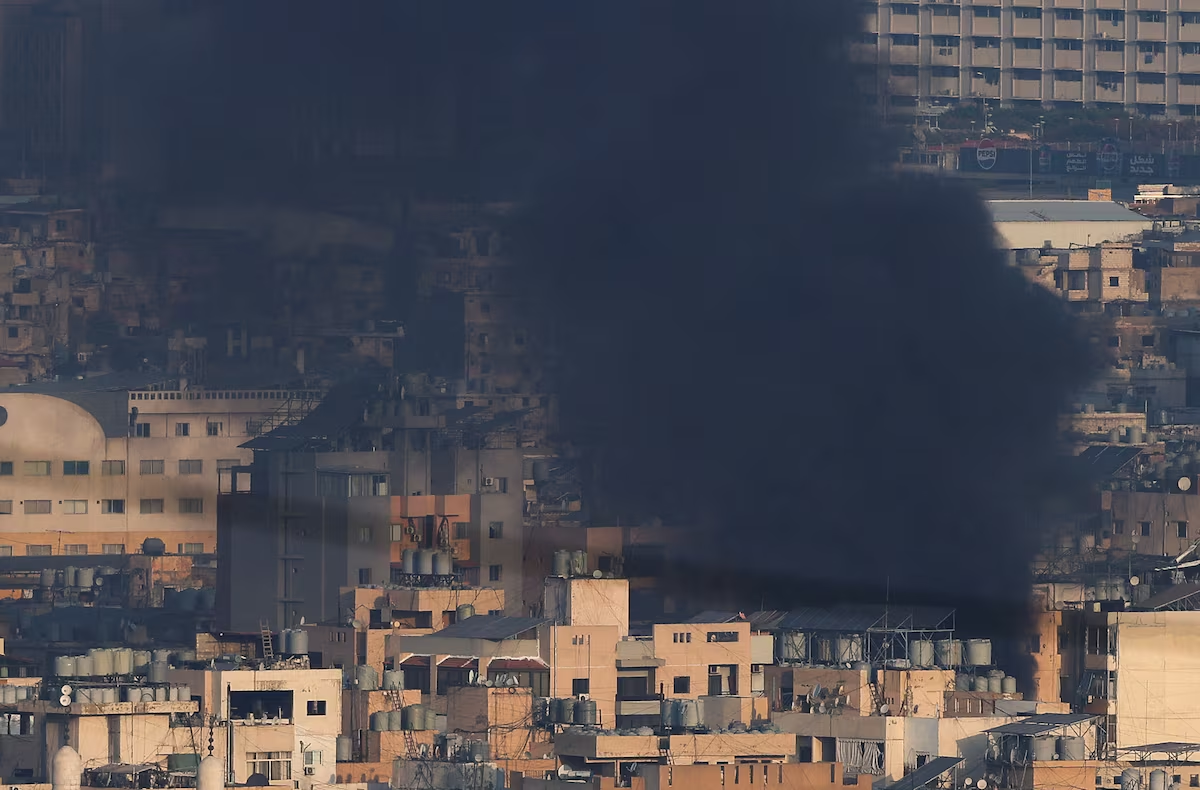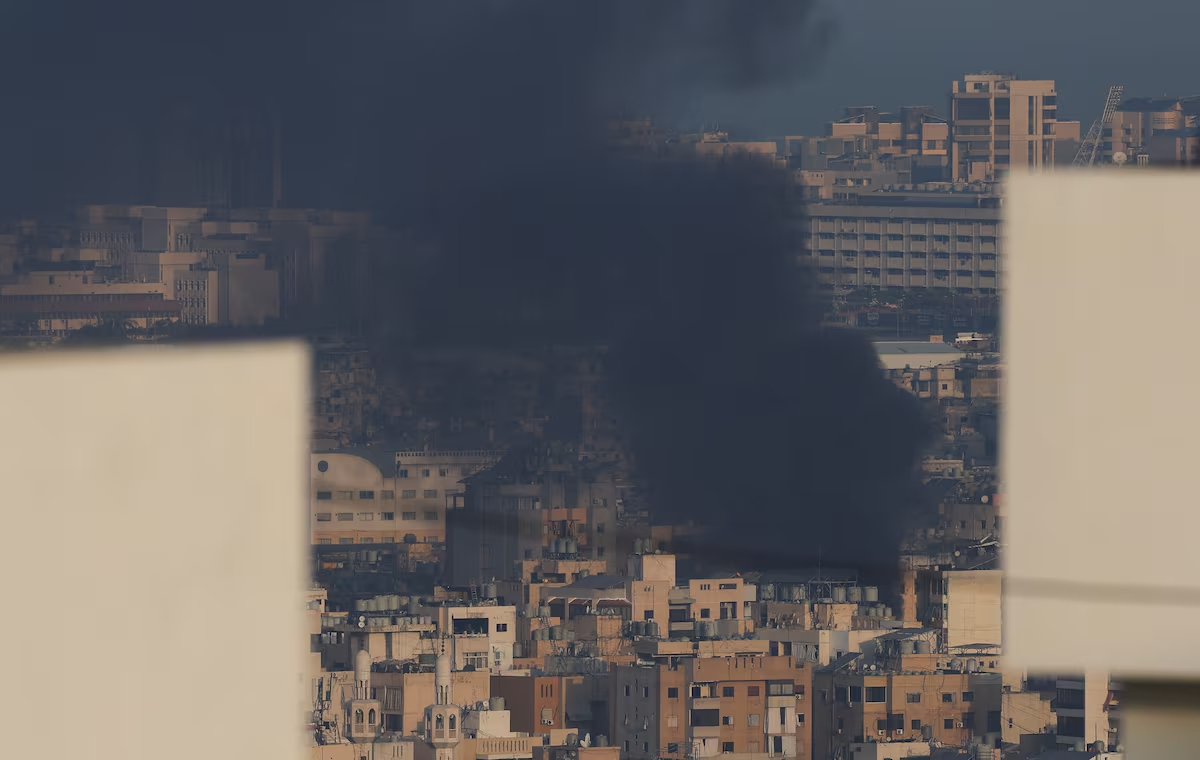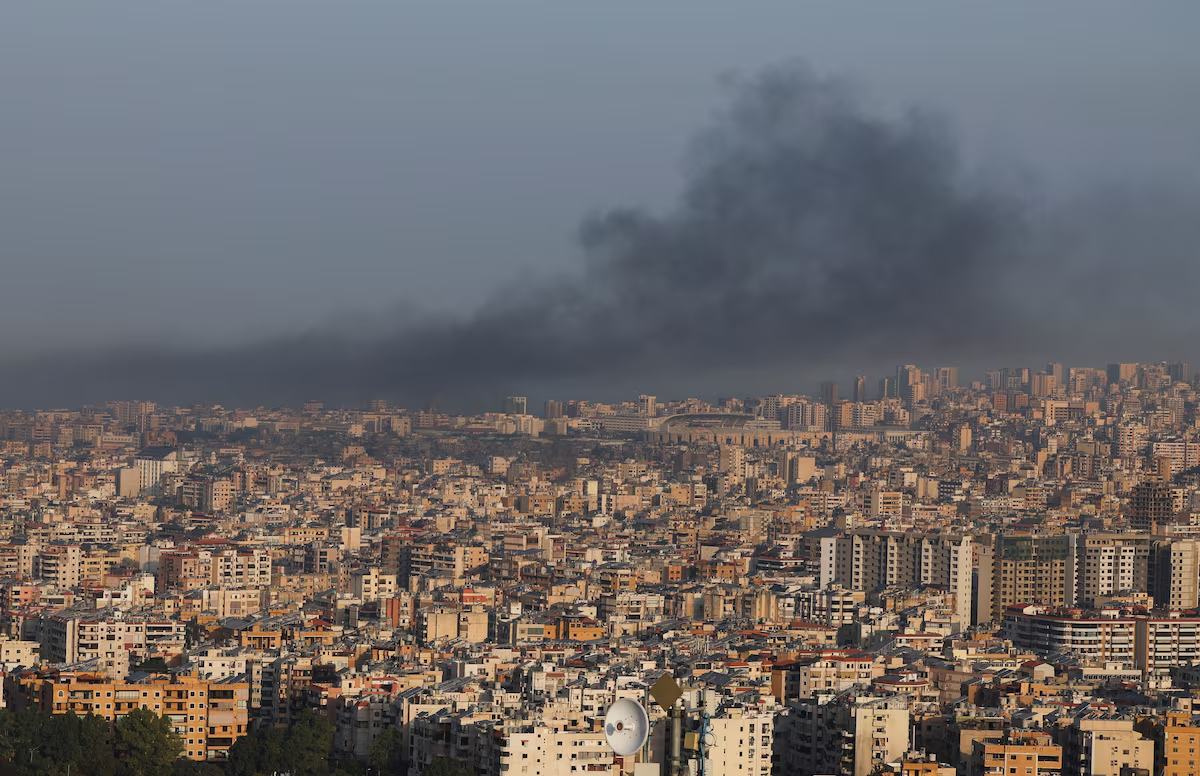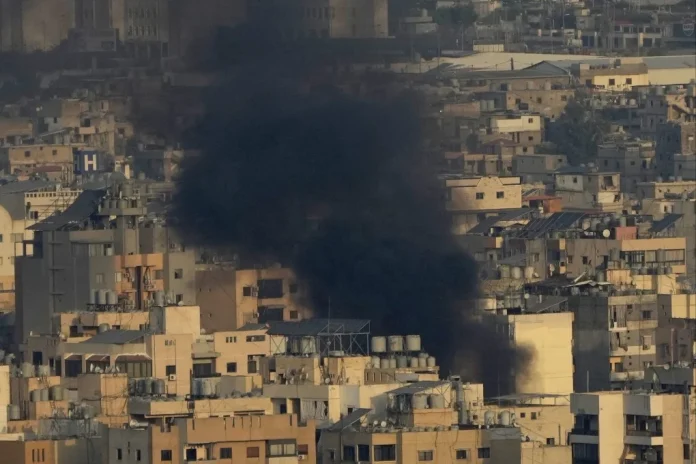Israel carried out an airstrike in Beirut’s southern suburbs early on Wednesday, hitting what it claimed was a Hezbollah weapons stockpile in the district of Dahiyeh. Witnesses in Beirut reported hearing two explosions and seeing plumes of smoke rise from two separate neighbourhoods in the Hezbollah stronghold. This strike followed an Israeli evacuation order that referenced only one building, though strikes impacted a broader area. The Israeli military stated it had issued warnings to mitigate civilian casualties but continued its campaign targeting Hezbollah infrastructure.

This escalation follows weeks of Israeli military strikes in southern Beirut, with recent operations carried out without prior warning or with warnings targeting smaller areas than were actually struck. According to the United Nations refugee agency, Israel’s evacuation orders have affected more than a quarter of Lebanon, particularly in the south, where Israel has been conducting incursions aimed at pushing back Hezbollah forces.
International reactions have been mixed, with Western nations calling for a ceasefire between Israel and Hezbollah, as well as in Gaza. However, the United States has expressed concerns over the scope of Israel’s recent bombing campaign in Beirut. On Tuesday, U.S. State Department spokesperson Matthew Miller stated that Washington had raised its opposition to Israel’s strikes on Beirut, adopting a more critical stance than it had previously taken. The last Israeli strike on Beirut, on October 10, killed 22 people and destroyed buildings in a densely populated area near the city center.

The broader Middle East remains tense following Iran’s missile attack on Israel on October 1, part of the fallout from escalating regional conflict. Iran’s allies in the “Axis of Resistance,” including Hezbollah, Yemen’s Houthis, and armed groups in Iraq, have mounted attacks in support of Hamas in Gaza, complicating international efforts to ease tensions. Iranian Foreign Minister Abbas Araqchi is visiting several countries in the region, including Jordan, Egypt, and Turkey, in an attempt to rally diplomatic support against what Tehran calls “Israeli aggression.”
Israel has ramped up its pressure on Hezbollah, particularly following the killing of senior Hezbollah leaders and commanders in recent strikes. Among those killed was Hezbollah’s long-standing secretary-general Hassan Nasrallah, marking one of the group’s most significant losses in decades. Despite calls from international leaders, including French President Emmanuel Macron, for a ceasefire, Israeli Prime Minister Benjamin Netanyahu has opposed halting operations, arguing that Israel must continue to dismantle Hezbollah’s infrastructure.
The ongoing conflict between Israel and Hezbollah, which reignited a year ago when Hezbollah began launching rockets at Israel in support of Hamas, has had devastating consequences for Lebanon. Israeli strikes over the past year have killed at least 2,350 people and wounded nearly 11,000, according to Lebanon’s health ministry. The strikes have also displaced more than 1.2 million people, as entire neighborhoods have been destroyed.

The rising death toll, which includes hundreds of women and children, has prompted growing international concern. While the figures reported by the health ministry do not distinguish between civilians and combatants, they underscore the heavy human toll that the conflict is exacting on the Lebanese population. Despite these losses, diplomatic efforts to end the fighting remain stalled, with neither Israel nor Hezbollah showing signs of backing down.




